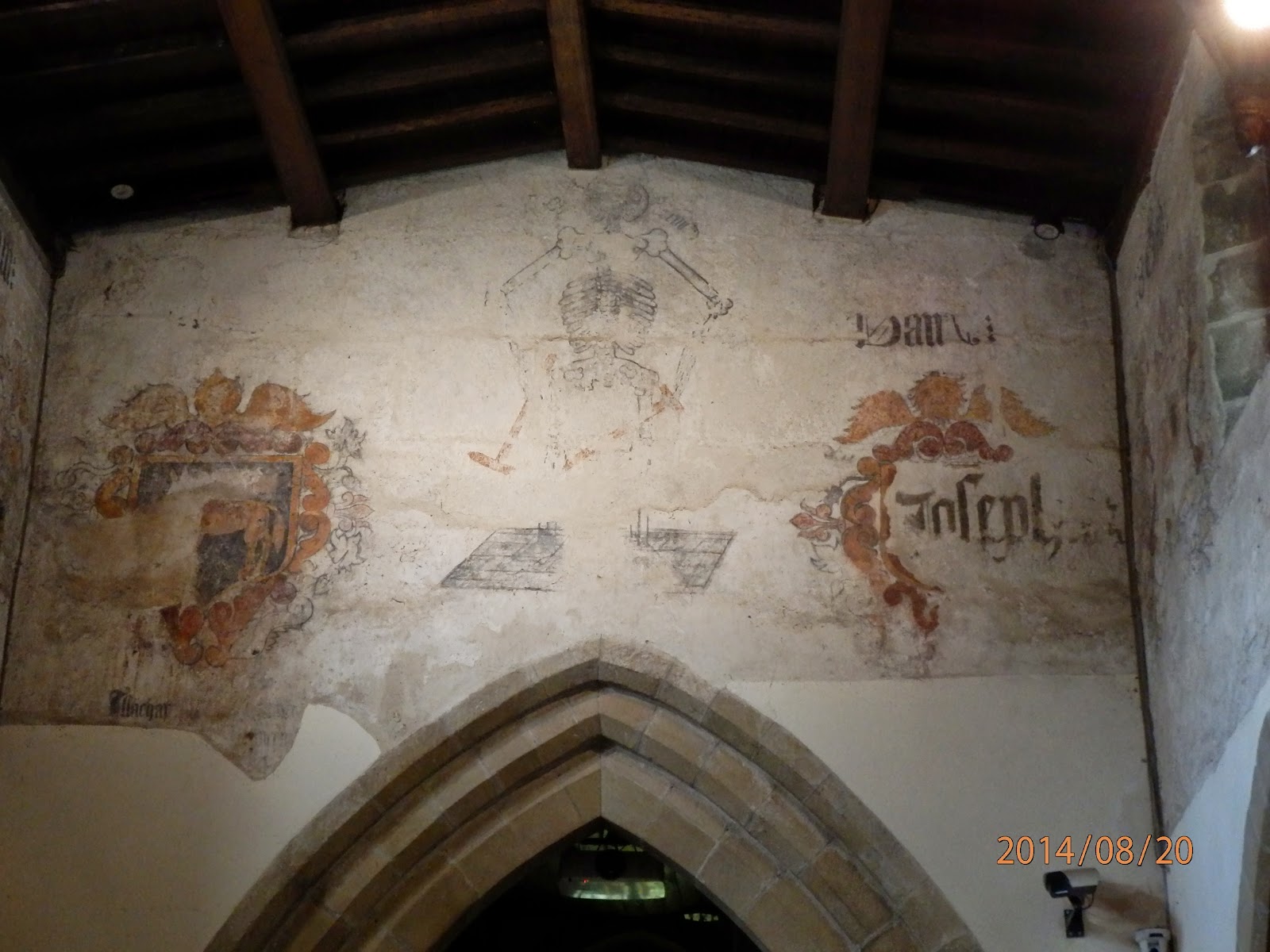Eyam was struck by the plague in 1665 and persuaded by their church leader William Mompesson, the villagers holed up and kept themselves segregated from surrounding villagers, to prevent the plague from spreading beyond the villages boundaries.
Remarkable selflessness and very few people survived.
Surviving cottages, now lived in by others but with memorial signs placed to record who had lived there in the time of the plague.
other Eyam folk of interest ( embiggen the picky )
and nice to see a Braille translation too
The Parish Church of St Lawrence in Eyam with exposed murals
this one modern stained glass window is dedication to Willaim Mompesson and the villagers story, its colours and design are beautiful
Mid August sees many villages in the Derbyshire and Staffordshire Peak District area 'well dressing', a practise that harks back to pagan times, when folk gave thanks to their gods, for having pure water from their wells and in their troughs, after the terrors of the plague.
It was once known as 'well flowering' and flower petals would have been used in ornate designs
Again, take a read of the Wiki page for a resume of the activity
Villagers were preparing for their own village well dressing and outlines are evidently set in clay bases, with black peppers and all manner of seeds used. See below ~
oh and I spotted a potential des res on the main street,
am only surprised it isn't on the market lol


























Such a tragic story---- the little cottages and gardens are beautiful and so quaint. Your photos are stunning!! I'd love to walk amongst those little homes--- the church is just amazing!!
ReplyDeleteVicki
Fascinating stuff! I especially like the concept of doing the paintings with such things as seeds.
ReplyDelete